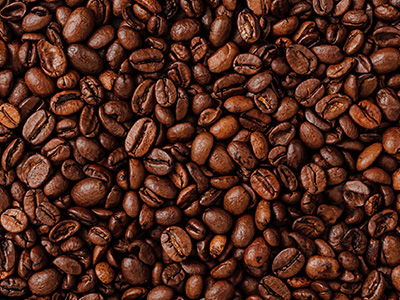The Best Supplements for Runners

Running was popular before the emergence of Covid-19, but it has seen a genuine boom since the onset of the pandemic. According to a survey conducted by Nielsen Sports in Australia, Colombia, France, India, Japan, Kenya, Mexico, South Africa, the UK, and the United States, four in ten of the 8,414 questioned participants considered themselves to be runners, with 30% stating they run at least once a week. The study’s results indicated that males and females are close to equally represented among those identifying as runners (53% and 47%, respectively).
A total of 13% of participants volunteered they had begun running between April 2020 – roughly around the time the world became aware of Covid-19 – and the time during which the survey was conducted (March and April 2021). Of that group of new runners, nearly 70% said that Covid-19 was at least one of the reasons they had taken up the activity, and virtually all said they intended to continue running if the pandemic were to end. Nearly a fifth (22%) of all runners offered they had been running more since the outbreak of Covid-19, and the vast majority of them – around 90% – intended to keep running more after the end of the pandemic.
Why more people are taking up running
 Those respondents identifying as runners in the survey appeared to suggest emotional and mental health benefits. “Runners show greater confidence to associate themselves with positive personality characteristics,” according to the authors, who specify that “[runners] are more likely to consider themselves to be warm and friendly, family oriented, optimistic and passionate.”
Those respondents identifying as runners in the survey appeared to suggest emotional and mental health benefits. “Runners show greater confidence to associate themselves with positive personality characteristics,” according to the authors, who specify that “[runners] are more likely to consider themselves to be warm and friendly, family oriented, optimistic and passionate.”
A total of 74% of respondents indicated they enjoyed running for reasons of “general health and wellbeing” and “to keep fit.” This hardly comes as a surprise, given people’s increased mindfulness of factors impacting their immune systems and overall health in these unprecedented times. For instance, according to the Council for Responsible Nutrition’s COVID-19 Consumer Survey, 85% of people in the United States report that “Covid-19 is a reminder to take care of their own health.” The same survey shows that the pandemic has triggered a surge in demand for nutritional supplements, indicating that “91% of users changing their supplement regimen increased use.”
A few things to keep in mind
Given the spike in popularity of both running and nutritional supplements, it makes sense to take a closer look at which supplements are especially useful for runners, in terms of not only performance-enhancing effects but also health in general. For example, the nature of running ought to lend added urgency to such themes as bone and joint care.
While there isn’t equally widespread agreement on every recommendation, the following list focuses on ingredients fairly commonly accepted as ranking among the most beneficial. It should be noted that while this guidance is primarily directed at endurance runners, it’s reasonable to assume a good amount of overlap with track sprinters. However, the latter are encouraged to conduct their own research to ensure all of their nutritional needs are met, given some key differences. For instance, while the amino acid derivative, creatine, seems to be frequently researched in the context of endurance athletics, in reality it appears to be useful only to runners focused on speed and shorter distances.
Of course, any use of a new supplement should first be discussed with a healthcare professional.
 Omega-3 Fatty Acids
Omega-3 Fatty Acids
Omega-3 fatty acids can indirectly improve endurance by reducing inflammation and muscle soreness, thereby allowing for quicker recovery and increased training time. This may result in the ability to run for longer. Many people choose fish oil to boost their intake of omega-3 fatty acids, but certain plant oils, nuts, and seeds are good sources as well.
Protein
Protein is crucial for growing, repairing, and maintaining muscle, which makes it a key factor in improved performance, in terms of both speed and endurance. At some point during a long run, the body may even begin to pull directly from its stored protein as an energy supply. Protein is also thought to support the immune system. Plant-based protein can play a role in reducing inflammation.
Vitamin D
Because running is an exceptionally high-impact activity, those who engage in it are at increased risk of developing bone issues. Adequate calcium levels can play a key role in preventing such issues, as calcium is vital to good bone density. Without vitamin D, the body is unable to absorb calcium from diet.
Multivitamins
Many runners appreciate the option of strengthening their bodies with several key nutrients from a single supplement. In addition to vitamin D, the B vitamins are popular with endurance athletes due to their ability to convert food into energy. Vitamins C and E are antioxidants and thus protect cells – including muscle cells – against damage from free radicals. While Vitamin C may be especially beneficial to the immune system, vitamin E is thought to support cardiovascular health.
Magnesium
Magnesium is needed for energy production, muscle recovery, and bone development. It helps prevent oxidative damage and is thought to counteract mental stress and act as a smooth-muscle relaxant. Magnesium can aid in reducing tiredness and maintaining regular blood-pressure levels, among other benefits.
L-Carnitine
L-Carnitine’s popularity is primarily based on the fact it promotes muscle growth while helping the body break down fat and convert it into energy, making it a useful ally in building lean muscle or simply losing weight. L-Carnitine is also believed to play a role in creating more red blood cells and increasing oxygen in the blood.
 Calcium
Calcium
As previously mentioned, running is a high-impact activity, which can cause stress fractures, joint issues, and other bone-related problems. These risks increase if calcium intake is low and the body needs to draw on internal stores for metabolic purposes, thereby raising the likelihood of bone loss.
Iron
Essential for efficient energy use, iron assists with the transport of oxygen from the lungs to wherever it needs to go, including the muscles required for running. The fact long-distance athletes deplete their iron reserves more easily accounts for problems such as muscle weakness and overall fatigue. Women tend to be more prone to iron deficiencies than men.
Branched Chain Amino Acids (BCAA)
With running comes an increased likelihood of a calorie deficit and losing muscle as a result of the body breaking down tissue as an energy supply. In addition to muscle loss, long-distance athletes can experience joint and muscle pain, fatigue, and sleeplessness as a result of being in a catabolic state. All of these effects may be countered to some extent by taking in more BCAA, which provide extra energy to muscle cells and are inked with reducing fatigue, supporting recovery, and stimulating muscle growth.
Probiotics
Probiotics are a combination of live friendly bacteria and/or yeasts which help maintain good health by fighting off bad bacteria. In addition to supporting immune function and controlling inflammation, certain good bacteria can assist with food digestion, help create vitamins, and more. One benefit particularly appreciated by runners is probiotics’ potential to promote a healthy digestive tract and thereby lower the risk of gastrointestinal issues – such as bloating or worse – before or during a run.
Caffeine
A stimulant, caffeine appears to reduce fatigue and provide added energy for up to several hours, including for endurance sports such as running. Since the effects of caffeine differ from person to person, it’s advisable to start with low to moderate doses so as to avoid side effects such as trouble sleeping, irritability, or anxiety.
Adaptogens (especially turmeric)
Several plants, mushrooms, and herbs – known as adaptogens – are believed to have positive effects on stress, fatigue, and energy levels. The most prominent among them is no doubt turmeric with its main active ingredient, curcumin. A popular spice, turmeric has long been used in traditional Chinese and Ayurvedic medicine for a range of health purposes. There are indicators that turmeric provides antioxidant support, improves joint health and mobility, reduces muscle inflammation and soreness, and aids recovery.
Conclusion
Covid-19 has given rise to a vastly increased concern with health and wellbeing around the world, including in North America and the United States. The rapidly growing popularity of running has been one component of this trend, as has the spike in demand for supplements meant to strengthen people’s immune systems and overall health. Because regular running can significantly affect a person’s nutrient needs, both runners and manufacturers of nutritional supplements ought to take note of the new reality. While recent running converts are well-advised to educate themselves on their bodies’ shifting needs, manufacturers are uniquely positioned to provide both the desired information and products specifically designed to meet the demand.












